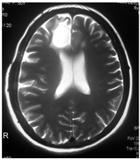Abstracts of the 20th European Congress of Psychiatry
Abstract
P-1484 - the Associations Between Menopausal Syndrome and Depression During Pre-, Peri-, and Postmenopausal Period Among Taiwanese Female Aborigines
-
- Published online by Cambridge University Press:
- 15 April 2020, p. 1
-
- Article
-
- You have access
- Export citation
P-1485 - Elevated c-reactive Protein, Psychological Distress, and Depression in 73,131 Individuals From the General Population
-
- Published online by Cambridge University Press:
- 15 April 2020, pp. 1-2
-
- Article
-
- You have access
- Export citation
P-1486 - Scientific Activities in the Field of Neuropsychopharmacology 2001–2010
-
- Published online by Cambridge University Press:
- 15 April 2020, p. 1
-
- Article
-
- You have access
- Export citation
P-1487 - the Feasibility of Identifying, Treating and Improving Outcomes in ‘hard-to-reach’ Young People With Multiple Complex Mental Disorders
-
- Published online by Cambridge University Press:
- 15 April 2020, pp. 1-2
-
- Article
-
- You have access
- Export citation
P-1488 - Takotsubo Syndrome When Emotional Stress Makes the Heart Break
-
- Published online by Cambridge University Press:
- 15 April 2020, p. 1
-
- Article
-
- You have access
- Export citation
P-1489 - Minimal Invasive Neurosurgery Technique for Treatment Some Psychiatric Cases and Syndromes
-
- Published online by Cambridge University Press:
- 15 April 2020, p. 1
-
- Article
-
- You have access
- Export citation
P-1490 - Sexual Dysfunction, Obesity and Metabolic Measures in First-episode Psychosis (fep)
-
- Published online by Cambridge University Press:
- 15 April 2020, p. 1
-
- Article
-
- You have access
- Export citation
P-1491 - EFPT Exchange Programme: a new Project Towards a Global Future
-
- Published online by Cambridge University Press:
- 15 April 2020, p. 1
-
- Article
-
- You have access
- Export citation
P-1492 - Late Onset Obsessive Compulsive Disorder After Resection of a Right Frontal Meningioma
-
- Published online by Cambridge University Press:
- 15 April 2020, p. 1
-
- Article
-
- You have access
- Export citation
PL01-01 - the Impact of Neuroscience on a Redefinition of Mental Disorder: a Novel Epistemology - the Human Brain Project
-
- Published online by Cambridge University Press:
- 15 April 2020, p. 1
-
- Article
-
- You have access
- Export citation
PL02-01 - Individualised Therapy of Alcoholism
-
- Published online by Cambridge University Press:
- 15 April 2020, p. 1
-
- Article
-
- You have access
- Export citation
SOA02-01 - the Role of Biomarkers in Psychiatry - General Overview
-
- Published online by Cambridge University Press:
- 15 April 2020, p. 1
-
- Article
-
- You have access
- Export citation
SOA03-01 - Understanding and Treating Depression
-
- Published online by Cambridge University Press:
- 15 April 2020, p. 1
-
- Article
-
- You have access
- Export citation
SOA04-01 - Update on Pathophysiology of Schizophrenia
-
- Published online by Cambridge University Press:
- 15 April 2020, p. 1
-
- Article
-
- You have access
- Export citation
SS01-02 - Circadian Dimension and Severity of Depression
-
- Published online by Cambridge University Press:
- 15 April 2020, p. 1
-
- Article
-
- You have access
- Export citation
SS01-03 - Managing Difficult-to-treat Patients
-
- Published online by Cambridge University Press:
- 15 April 2020, p. 1
-
- Article
-
- You have access
- Export citation
SS01-04 - Specific Experience From Australia
-
- Published online by Cambridge University Press:
- 15 April 2020, p. 1
-
- Article
-
- You have access
- Export citation
W01-01 - From Karyotype to Targeted Microarray
-
- Published online by Cambridge University Press:
- 15 April 2020, p. 1
-
- Article
-
- You have access
- Export citation
W01-02 - Neuropsychiatric Aspects of the 22q11 Microdeletion Syndrome
-
- Published online by Cambridge University Press:
- 15 April 2020, p. 1
-
- Article
-
- You have access
- Export citation
W01-03 - Neuropsychological Phenotyping of Genetic Syndromes
-
- Published online by Cambridge University Press:
- 15 April 2020, p. 1
-
- Article
-
- You have access
- Export citation



